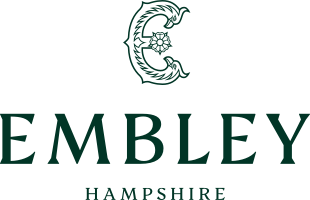Last weekend I happened to pop into a well-known bookshop to have a look at what’s new and what’s not. In browsing the shelves, I noticed a new version of Shakespeare’s Hamlet. Truth be told I am not sure if it was in fact a new version or just that my own copy is so used that anything else seems new. In thumbing through the text I was struck by how much thought there is to being human, from the famous existential angst of ‘to be or not to be…’ with all of the concomitant woes that flesh is heir to or in Gallic fashion to take arms against a sea of trouble. To the profundity of:
What a piece of work is a man, how noble in reason, how infinite in faculty, in form and moving how express and admirable, in action how like an angel, in apprehension how like a god, the beauty of the world, the paragon of animals.
"What a piece of work is a man, how noble in reason, how infinite in faculty, in form and moving how express and admirable, in action how like an angel, in apprehension how like a god, the beauty of the world, the paragon of animals."
The suggestion is about the nobility of being human, the tension for Hamlet is that he struggles to feel the nobility, to experience the divinity of apprehension or the aesthetic of the globe. I wonder what you make of it reader? Is humanity as Hamlet describes? In the world we inhabit there is much that we could table to challenge the nobility of a species so bent on destroying itself or parts of it, the judgement and wisdom seems less divine than demonic in lived experience, so what are we to make of it? I suggest the tension is about being and becoming: the tension between what we are in essence and our nature against how we are arriving at the authentic version of ourselves as we move through life.
I have mentioned the story of the ship of Theseus before to the children in Assembly. You will be familiar with it from a popular comedy but more of that later. The essence of the story is that Theseus’ ship is used for hundreds of years and with the passage of time has various component parts replaced as they wear out. After all the years, the ship has had every single part replaced. Is it therefore the same ship or just a name, a collection of parts, such that the ‘new’ ship only has the title in common with the original? The popular reference is in Only Fools and Horses where Trigger rejoices in having had the same brush for years… admitting that it has had seventeen new heads and a corresponding number of handles. Is it the same brush? Is the ship of Theseus still the same?
Something to think about reader? As the cells in our bodies replace themselves as they wear out, is our current self the same as the one of 15 years ago? It leads us to consider what our true self is and if we are in a constant state of flux, we might question if in fact there is a ‘self’ that persists or not. I take the view that there is a self; that we are more than the material of our existence and that the move through life brings the flux that changes more than the material nature of our corporeal frame. The liturgical season of Lent gives us the opportunity to examine this process more closely.
As our temporal frame goes through the inevitable change hardwired into our DNA, our immaterial selves are open to a deeper change. In considering our attitudes, our dispositions, our choices, we are not determined, as much as Herbert writes:
"I struck the board, and cried, “No more;
I will abroad!
What? shall I ever sigh and pine?
My lines and life are free, free as the road,
Loose as the wind, as large as store."
He feels the tight collar of restriction and rails against what he considers to be life’s restrictions. But more optimistically, we are not so tightly constrained, the capacity to change is an intrinsic part of being human. But change is not necessarily a neutral act, it may be for the better or worse. As we move to the close of term and look ahead to Easter, the Lenten opportunity to strip away some of the fripperies of life and the attachments that are more ornamental than essential to our passage and person allows us the room to change and for the better. To consider the extent to which we are acting for the Good, adhering to the True and aspiring for the Beautiful. The disposition to pursue these three values allows us to change and to grow; allows us to resemble Theseus’ ship in process but not in product. The pursuit of what is Good, True and Beautiful allows us to change for the better, to be the authentic version of ourselves. What a piece of work that is, noble in reason; infinite in faculty, express and admirable… the beauty of the world…
MORE BLOGS —
Parent wants
Been a busy few weeks – though when isn’t it? I have spent quite a bit of time speaking with Prep School Heads.
Bridges
In January 1942, in a small suburb just outside Berlin, a group of engineers, scientists and logicians gathered to map out a strategy that would change the face of Europe.




